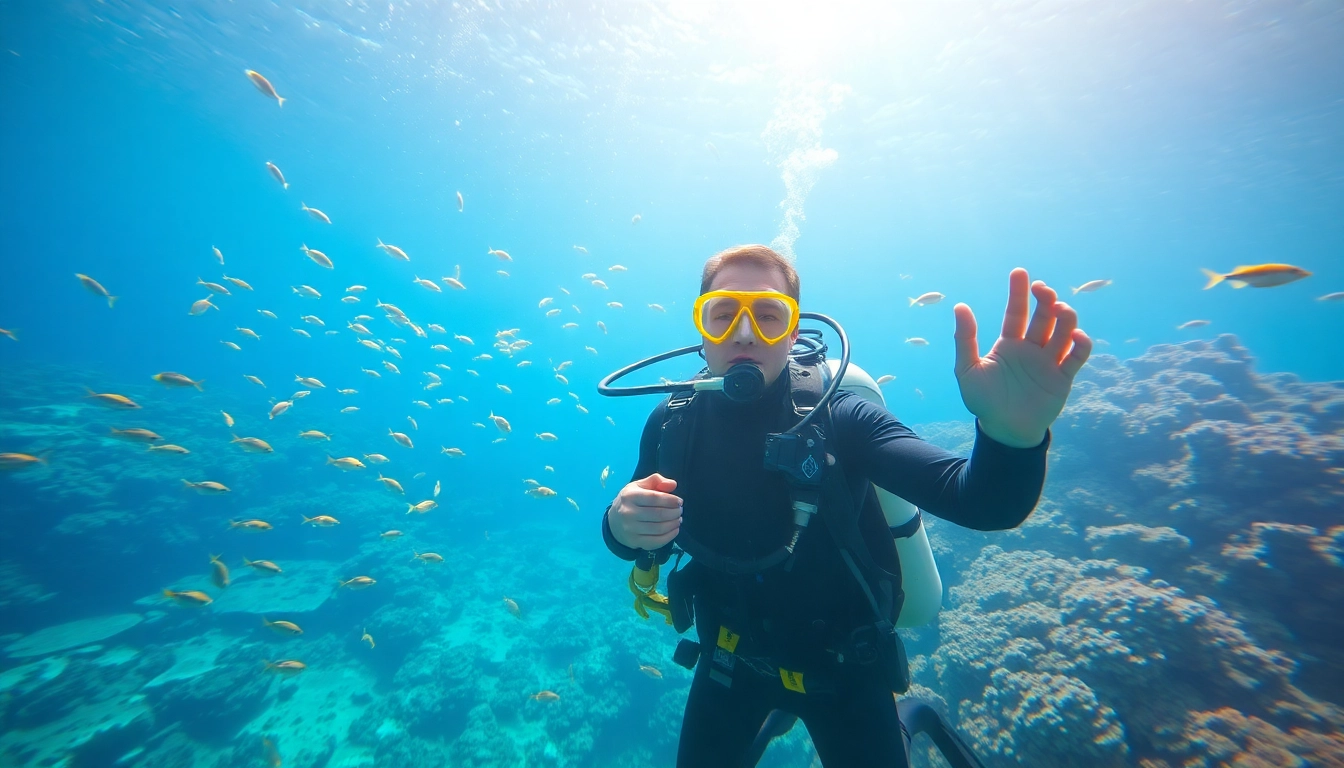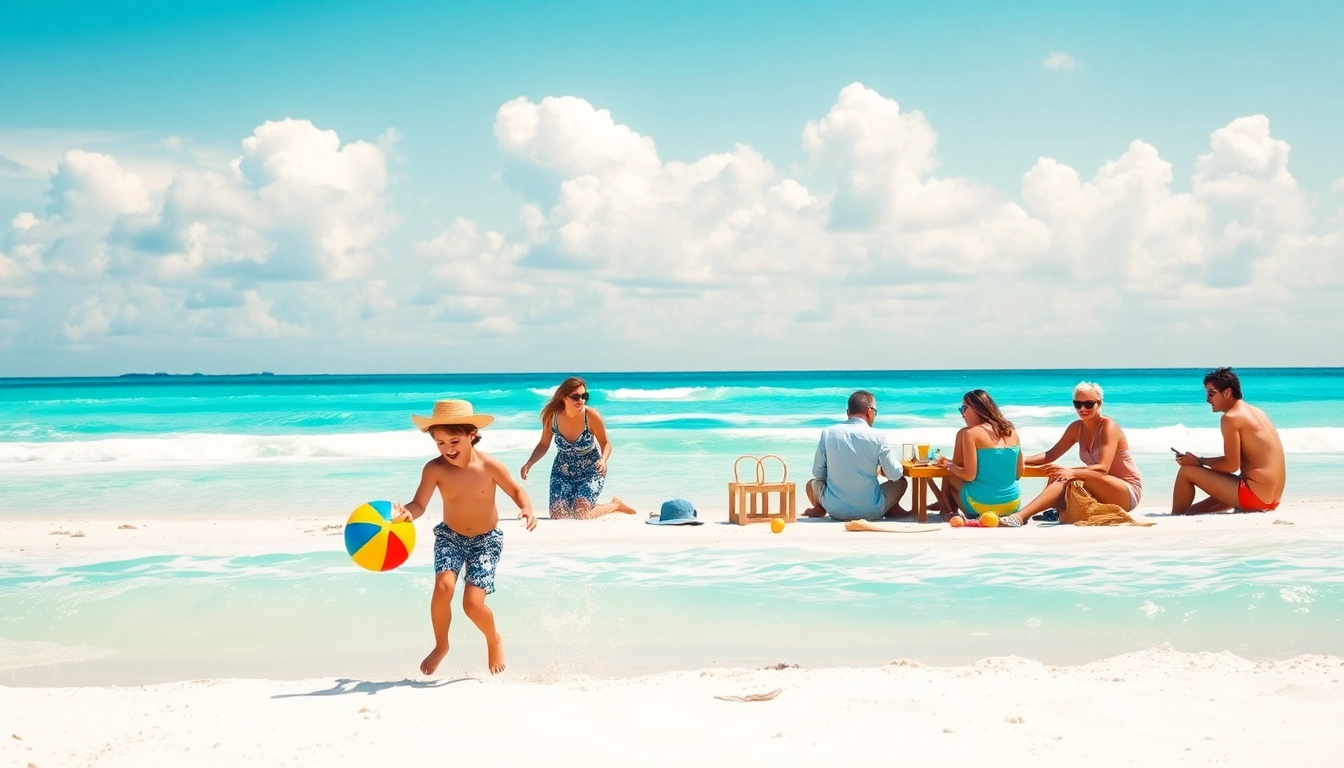Understanding Bali Diving Course Options
Types of Courses Available
Bali, renowned for its stunning underwater landscapes and rich marine biodiversity, offers a variety of diving courses catering to different skill levels. Whether you are a seasoned diver seeking to enhance your skills or a novice ready to take the plunge, the Bali diving course options are plentiful. Courses typically fall into three main categories: beginner courses, specialty courses, and advanced courses.
Beginner courses are designed for those with little to no diving experience and include the internationally recognized PADI Open Water course, which teaches foundational skills necessary for safe diving. Specialty courses, such as underwater photography, night diving, and wreck diving, allow divers to refine their skills in specific areas of interest. Advanced courses, such as the PADI Advanced Open Water Diver course, focus on enhancing existing skills and introducing new diving techniques.
Course Duration and Structure
The structure of diving courses in Bali varies, typically ranging from two to five days, depending largely on the course type. For example, the PADI Open Water Diver course typically requires around three days of training, which includes classroom instruction, confined water practice, and open water dives. Similarly, the Advanced Open Water Diver course usually spans two days and includes five different adventure dives, each focusing on a specific skill or area of diving.
Certification Options through the Bali Diving Course
Upon completion of a diving course, participants receive certification, which allows them to dive independently or with a guide. The PADI certification is the most recognized globally, providing access to dive sites worldwide. Other certification agencies may also offer courses in Bali, though PADI remains the preferred choice among many divers for its comprehensive curriculum and reputation.
Preparing for Your Bali Diving Course
Essential Gear and Equipment
Before embarking on a diving course in Bali, it’s essential to familiarize yourself with the necessary gear and equipment. At a minimum, divers will need a wetsuit, buoyancy control device (BCD), regulator, tank, and mask & fins. While gear can often be rented from dive centers, many experienced divers choose to invest in personal equipment for better comfort and fit. It’s advisable to consult with the diving school regarding equipment requirements prior to your first dive.
Health and Safety Considerations
Diving inherently comes with certain health and safety considerations. Prior to taking a diving course, divers should ensure they are in good physical health and free from conditions that could adversely affect their diving experience, such as respiratory issues or heart conditions. A medical questionnaire is usually provided to assess fitness to dive, and it may be prudent for some to seek a physician’s approval.
Best Time to Take a Bali Diving Course
The ideal time to embark on a Bali diving course is generally during the dry season, which runs from April to October. During this period, the weather is stable, water visibility is at its best, and marine life is abundant. Moreover, taking advantage of off-peak times can also help you secure better deals on courses and accommodations.
What to Expect During Your Bali Diving Course
Classroom Theory and Practical Sessions
The initial phase of most diving courses consists of classroom sessions where participants learn essential underwater theory, including safety protocols, dive tables, and the physiology of diving. This theoretical knowledge is critical for ensuring that divers understand the mechanics of breathing underwater and the principles of buoyancy.
Following the theoretical component, students transition to practical sessions. This typically includes confined water training where you’ll practice skills such as buoyancy control, clearing your mask, and emergency procedures in a shallow water environment before heading out to open water for actual diving.
First Dive Experience Overview
Your first dive experience during the Bali diving course is paired with a certified instructor, who will guide you through the initial ascent beneath the waves. Expect to experience a mix of excitement and nervousness as you enter an entirely new underwater world, surrounded by colorful coral reefs and a diverse array of marine life. Instructors will ensure that you feel comfortable, providing support as you adjust to the sensations of being underwater and the thrill of diving.
Feedback and Evaluation in Courses
Throughout the course, instructors provide feedback on your performance, emphasizing areas that require improvement and reinforcing skills that you already excel at. This constructive evaluation process is key to personal development and ensuring that you are a confident and safe diver by the end of your training.
Enhancing Your Skills Post Bali Diving Course
Advanced Courses and Specialties
Once you’ve completed your initial diving course, consider taking further training to refine your skills. Advanced courses, such as the PADI Advanced Open Water Diver course, enable divers to undertake deeper dives and learn specialized skills. Specialty courses in underwater navigation, wreck diving, or diving with nitrox air mixes can also enhance your expertise and confidence while diving.
Joining a Diving Community
Engaging with a local or online diving community can provide ongoing support, advice, and opportunities for diving trips. Many divers often share experiences, forming friendships and planning excursions together. Whether it’s joining a diving club or participating in social media groups, connecting with fellow divers can enhance your enjoyment of the sport.
Maintaining Skills and Continuing Education
Regular diving practice is essential for maintaining your skills, with most divers opting to dive once every few weeks. Additionally, continuous education opportunities such as rescue diver courses or instructor training can help you progress in the diving world, ensuring you remain informed about safety and best practices.
Exploring Bali’s Diving Spots
Top Diving Locations for Beginners
Bali offers a fantastic range of diving sites suitable for beginners. Locations such as Tulamben, with its famous wreck dive at USAT Liberty, and Nusa Penida, known for its vibrant marine life, provide ideal conditions for novice divers. Additionally, the gentle currents and shallow waters found in these areas lend themselves well to safe diving experiences, enhancing confidence among new divers.
Best Places for Experienced Divers
For seasoned divers, Bali boasts challenging dive sites like Menjangan Island and Amed, characterized by sweeping walls, rich coral gardens, and a chance to spot larger pelagic species. These locations often present stronger currents and deeper dives, making them suitable for certified divers eager to explore advanced diving conditions.
Conservation Efforts in Bali’s Diving Areas
With the increase in diving activities, conservation efforts have become imperative to preserve Bali’s marine ecosystems. Many dive centers engage in environmental initiatives, promoting awareness about coral reef preservation and responsible diving practices to protect the natural habitat. Participating in conservation-oriented dives or eco-friendly diving tours can be a great way to contribute to the sustainability of Bali’s underwater environments while enjoying your diving journey.



